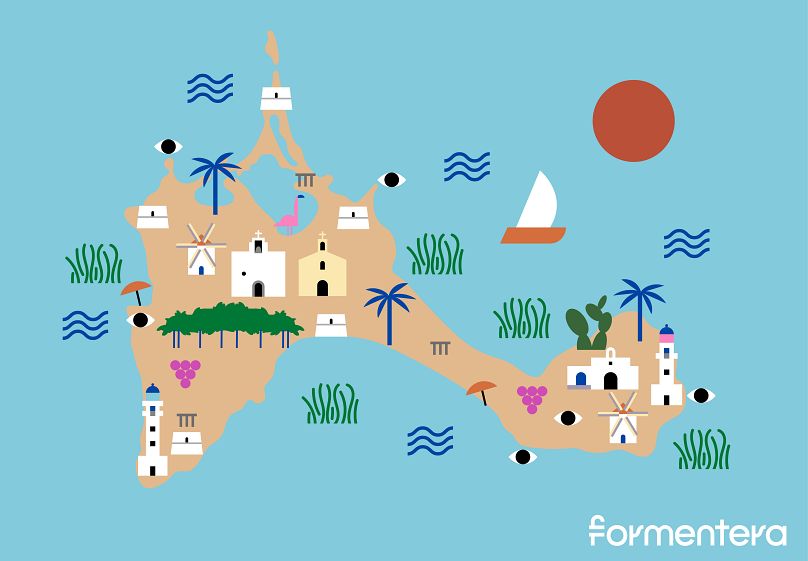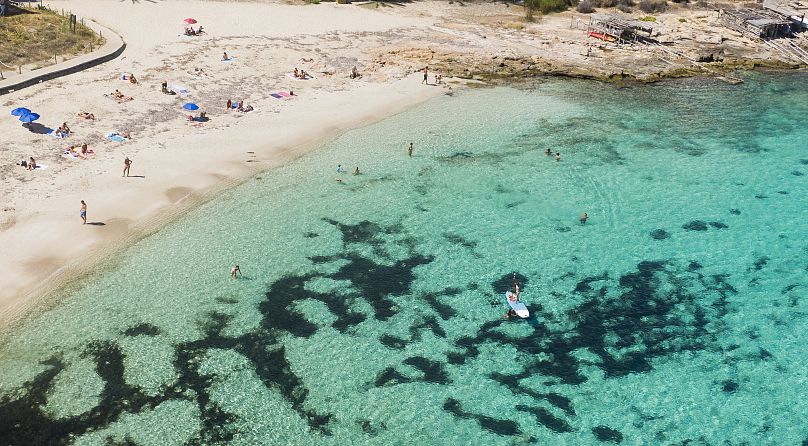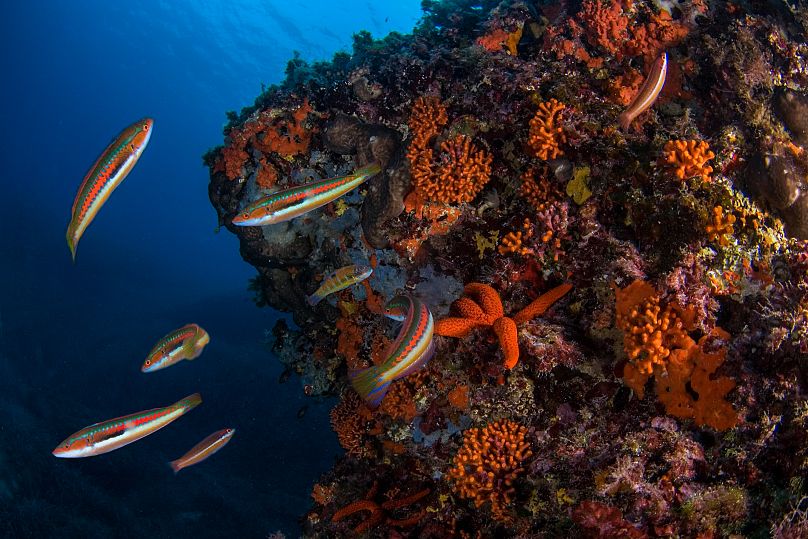Ibiza’s laid-back cousin, Formentera – the Balearic island with no airport and few paved roads – knows a thing or two about slowing things down. Life here is all about the simple things: eat lobster rice with your toes in the sand; watch the sun dip into the Mediterranean with a glass of Formentera wine; take a stroll along powdery white sand beaches that meet a turquoise sea. Add to that a Marine reserve with some of the clearest waters in Europe, a 130-kilometre hiking network and a burgeoning food scene, and you can see why so many who come to Formentera never leave.
 ADVERTISEMENT
ADVERTISEMENT
 ADVERTISEMENT
ADVERTISEMENT
1. The island’s “green routes”
The island’s 32 hiking and biking trails, known as “green routes”, connect whitewashed villages like Sant Ferran and Es Pujols via 130 kilometres of stone and sand trails flanked by pine forests and turquoise seas. The green routes pass Formentera’s iconic lighthouses and watchtowers, including La Mola and Cap de Barbaria, where the best panoramic views of the island can be found. Nature, too, is reason enough to lace up your hiking boots: wildflower meadows, juniper forests and isolated coves are just some of the landscapes you’ll encounter.
2. The bluest waters in the Mediterranean
Thanks to the Posidonia Oceanica, a seagrass that acts as a natural filtration system on the island, Formentera has some of the clearest and bluest waters in the Mediterranean. Explore the island’s 69-kilometre coastline on a paddleboard or kayak or join a dive or snorkelling tour, where you’ll find an underwater world of shipwrecks (the sunken Don Pedro cargo ship is 140 metres long) and rich marine life. The islands of Espalmador, off the northern coast of Formentera, offer the clearest waters for underwater exploration, while Cala Saona has calm waters for paddle boarding and swimming.
3. A passion for slow food
Blessed with miles of coastline and rich volcanic soil, Formentera is home to some of Spain’s highest quality ingredients, including olive oil, sea salt, figs, lamb, lobster and “xeixa”, a low-in-gluten flour that gives Formentera bread its sweet and rich flavour. It’s no wonder, then, that dishes like guisat de peix (fish stew) and sobrasada (cured pork sausage meat) are prepared with the utmost care. A prized ingredient here is peix sec, a sun-dried fish that’s preserved in olive oil and still caught using Formentera’s traditional wooden fishing boats. The best way to eat peix sec is on an ensalada payesa, a salad of fresh tomatoes, onions, peppers and crispy-fried croutons.
4. Call to the wild
During the Spring and Autumn, Formentera’s lagoons and wetlands attract thousands of migratory birds journeying from Africa to Europe. In Salines, a protected natural park that spans from the south of Ibiza to the North of Formentera, you can spot over 200 bird species, including puffins and flamingoes. A short sail to UNESCO Heritage Site Es Freus Marine Reserve comes with more bird watching opportunities: home to the Posidonia meadows, the tiny islands between Formentera and Ibiza shelter European Shags, Petrels and the endemic Shearwater. Inland, look out for the colourful native lizards soaking up the sunshine.
5. A sustainable future
Formentera has been a natural paradise for thousands of years, and the local authorities intend to keep it that way for many more to come. The Save Posidonia Project aims to protect the island’s unique Posidonia Oceanica, which is crucial to filtering sediments and oxygenating the sea, by allowing visitors to sponsor areas of seagrass for as little as 1 euro. Through the website formentera.eco, the number of vehicles that can enter the island during the high season is also controlled, and, thanks to the efforts of The Plastic Free Ibiza and Formentera project, the islands hope to be free of all single-use plastics by 2023.
6. A beach for everyone
From the wild virgin coves of Playa Tramuntana to the restaurant-lined beaches of Ses Illetes and Levante beach, there’s a stretch of sand on Formentera to suit every beach-goer. For a true Robinson Crusoe experience, set sail to the tiny private island of S’Espalmador, where empty white sands and cobalt-blue coves are devoid of any restaurants or hotels. More developed beaches like Ses Illetes are lined with chiringitos selling lobster rice and punchy Formentera wines among the dunes, while in Ses Salines Nature Park you’ll find swathes of powdery sands surrounded by pink-hued salt lagoons and lush forest.



